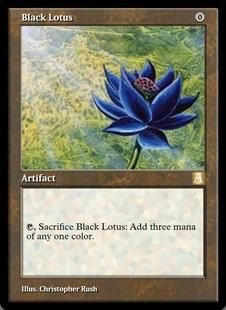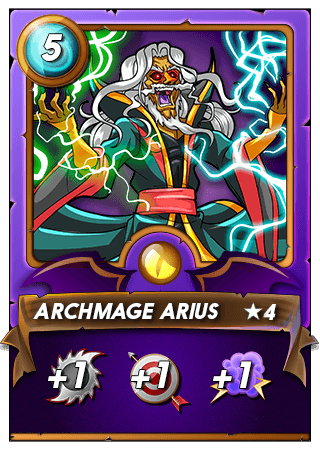Availability Heuristics in Magic the Gathering vs Splinterlands
If you’re coming here from Magic: The Gathering, you may experience the same thing I did. I wanted to do really well, and I felt like I had an advantage coming from Magic. Well, I was very wrong. Splinterlands is an entirely different animal with different fangs, horns, and an even higher dollar price. I just about gave up and decided to focus my efforts elsewhere, when I found @Kalkulus and @mammuter on Hive. As an incoming Magic player, they have the absolute best introduction to the game, as it is the first deeply data-driven analysis and primer I’ve come across – and boy howdy, is that something we Magic players love. Data. I’ve gone ahead and delegated 25% of the rewards to them, and linked a few of their starting summoner guides. Also, I’ve intentionally kept hard data out of this post, because I wanted to direct you to them. Thanks for coming, I’ll see you on the battlefield!
Hey there! Thanks for coming by. This is my first post in a small series I’m doing that I’ll affectionately title “Lotus to Arius” (to myself, mostly). Magic: the Gathering, if you’re not familiar, is a trading card game founded in 1993 by Richard Garfield. It’s since exploded in popularity all over the world as a means of kitchen table fun, treasure troves for collectors, and competitive bloodlust. The most expensive card, you’ve most likely heard of: Black Lotus. From a play perspective, it’s absurdly powerful. So powerful, that there are only a couple of formats you can play it in, and in all cases, only 1 copy, rather than the usual max of 4 copies per deck.

Just hopping into Splinterlands, I found the most expensive card I could on the Market, to see if I could find the Lotus tie-in. I believe I have found it in Arius. Therefore, my post, comparing Splinterlands strategies through the lens of a longtime competitive Magic: The Gathering player. There was competition for this top spot, but Archmage Arius was the first real “high dollar” card, so I gravitated towards it.

In my field of study, Behavioral Economics, this is called the availability heuristic. Essentially, a cognitive bias that doesn’t necessarily foretell a person’s motivations or behavior, but rather an error in, or lack of, information availability/processing (Thaler, Sunstein). Essentially, our decisions are sometimes impacted by what is available to use. The information, or resources. That’s what I want to talk about today: Information Availability.
When it comes to playing Magic: The Gathering (henceforth in the rest of this post just “MTG”), the game exists largely in the choices made during gameplay, unlike Splinterlands, which is completely automated. Splinterlands just runs the equation with the variables it was given. There’s no sense in cheering for your team, as it is, unlike most things, predetermined.
When I’m playing MTG on a competitive level, I’m scouring every aspect of the “Battlefield” for an information advantage. Not cheating, not withholding information outside what the rules allow, but rather just looking for information that my opponent either may not have leveraged themselves or perhaps thought I didn’t notice. These can lead to anything from poker-Esque tells, how their lands (available mana to spend each turn) are sequenced (what order they are played in), what plays of mine they choose to interact with, and how brazenly they play. In MTG, you’re constantly digesting a ton of information, and you can sink pretty quickly in high-stakes tournaments if you can’t keep up.
So, what information does Splinterlands afford us, as the battle itself is set in stone? @kalkulus and @mammuter point out in their post, “Beginners Guide to Kelya Frendul”, something I think most other strategy posts I found forgot, “Obsidian disregards the armor buff, and Kelya has no good tank against magic damage in the base deck. The result is horrible, with less than a 30%-win chance. Avoid Obsidian at all costs.” (@Kalkulus, @Mammuter).
So what’s the trick? Avoiding Obsidian when playing Kelya? No, the lesson here is to be as observant as possible when selecting your summoner. I noticed it was fairly easy as a new player to zoom my eyes to see how much mana I had to spend that game before skipping through to play some combo I thought of, regardless of what I was playing against. This is an excellent way to learn a strategy intimately, but it’s a better way to lose a bunch of games back-to-back.
A better method here is to examine their recently played summoners, and make the best foil decision from there. In MTG, ideally, the field is narrow, but not too narrow, allowing a healthy amount of decks in any given field. These types of ecosystems require your deck isn’t so rogue and theory crafted, and Splinterlands feels the same. The margins are tight, and one point can make all the difference. For this reason, the largest piece of information you can possibly glean from your opponent is the same that should guide you crafting your lineup.
Conversely, the best way to mitigate this information being used against you is to have a deep understanding of matchups at your competition levels. You may know the top three best choices of summoner against any given combatant, but the top choice may not be the best choice. An opponent could anticipate and adjust accordingly. In fact, I would hope so.
When selecting my summoner, I do my best to guess their base summoner choice, assuming they have not made any decisions. Because of this, how you choose to play your summoners, and in what order, is incredibly important. By knowing your most common summoner, at higher levels of gameplay, it’s safe to assume this information would be used against you. Sometimes the best play is to foil their foil.
There’s an analogy from The Princess Bride here, I just know it.
THE CAPTAIN AND THE CONCLUSION

This may seem like an obvious intuition for most, but coming from MTG, you certainly need to source your incremental advantage wherever you can elsewhere. It’s easy to overlook simple advantages – we’re all humans with heuristics and biases. Hopefully this helps narrow your gaze a bit, especially if you’re a fellow Planeswalker. This is a strange plane, Splinterlands…there’s a lot more summoners here. Until next time.
Octopus, out.
Cited/Links:
Thaler, R. H., & Sunstein, C. R. (2021). Nudge: The final edition. Penguin Books, an imprint of Penguin Random House LLC.
Black Lotus, 1993. Christopher Rush.
Archmage Arius, Splinterlands, 2021.
Beginners Guide to Kelya Frendul -@kalkulus
Beginners Guide to Obsidian -@kalkulus
Beginners Guide to Tarsa -@kalkulus
Beginners Guide to General Sloan -@kalkulus
Great post. You bring up many interesting strategy points, which I think are underappreciated in this game.
While the game is automated, the combination of rules, element avaiability and mana creates so many different scenarios that you rarely play the same match twice. For this reason, having a good understanding of the overarching strategy elements, like you have discussed here, is very valuable.
I look forward to your next posts in this series! Also, you should enter this in the social media challenge, if you care about the hive payouts. I think the splinterlands team appreciates efforts to bring in new players such as you are doing here. There was a new one posted today: https://peakd.com/hive-13323/@splinterlands/splinterlands-weekly-curation-challange-january-19-2022 .
Congratulations @octopus-mtg! You have completed the following achievement on the Hive blockchain and have been rewarded with new badge(s):
Your next payout target is 100 HP.
The unit is Hive Power equivalent because your rewards can be split into HP and HBD
You can view your badges on your board and compare yourself to others in the Ranking
If you no longer want to receive notifications, reply to this comment with the word
STOPCheck out the last post from @hivebuzz:
Support the HiveBuzz project. Vote for our proposal!